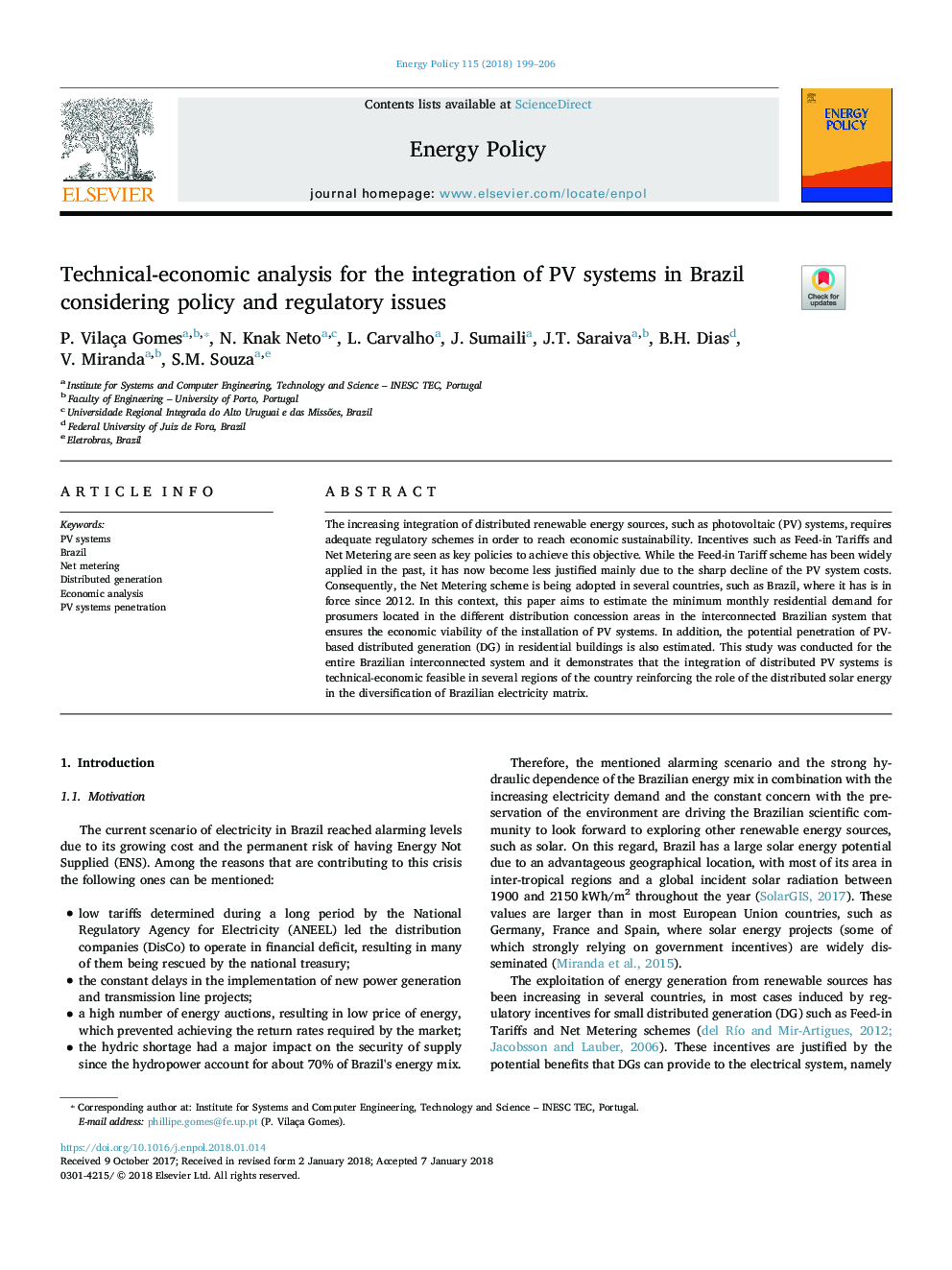| Article ID | Journal | Published Year | Pages | File Type |
|---|---|---|---|---|
| 7397811 | Energy Policy | 2018 | 8 Pages |
Abstract
The increasing integration of distributed renewable energy sources, such as photovoltaic (PV) systems, requires adequate regulatory schemes in order to reach economic sustainability. Incentives such as Feed-in Tariffs and Net Metering are seen as key policies to achieve this objective. While the Feed-in Tariff scheme has been widely applied in the past, it has now become less justified mainly due to the sharp decline of the PV system costs. Consequently, the Net Metering scheme is being adopted in several countries, such as Brazil, where it has is in force since 2012. In this context, this paper aims to estimate the minimum monthly residential demand for prosumers located in the different distribution concession areas in the interconnected Brazilian system that ensures the economic viability of the installation of PV systems. In addition, the potential penetration of PV-based distributed generation (DG) in residential buildings is also estimated. This study was conducted for the entire Brazilian interconnected system and it demonstrates that the integration of distributed PV systems is technical-economic feasible in several regions of the country reinforcing the role of the distributed solar energy in the diversification of Brazilian electricity matrix.
Related Topics
Physical Sciences and Engineering
Energy
Energy Engineering and Power Technology
Authors
P. Vilaça Gomes, N. Knak Neto, L. Carvalho, J. Sumaili, J.T. Saraiva, B.H. Dias, V. Miranda, S.M. Souza,
